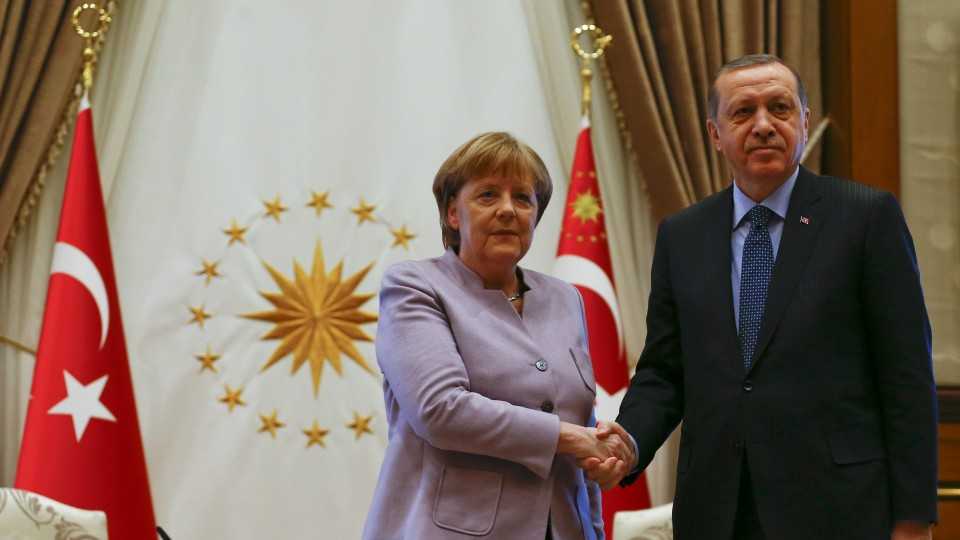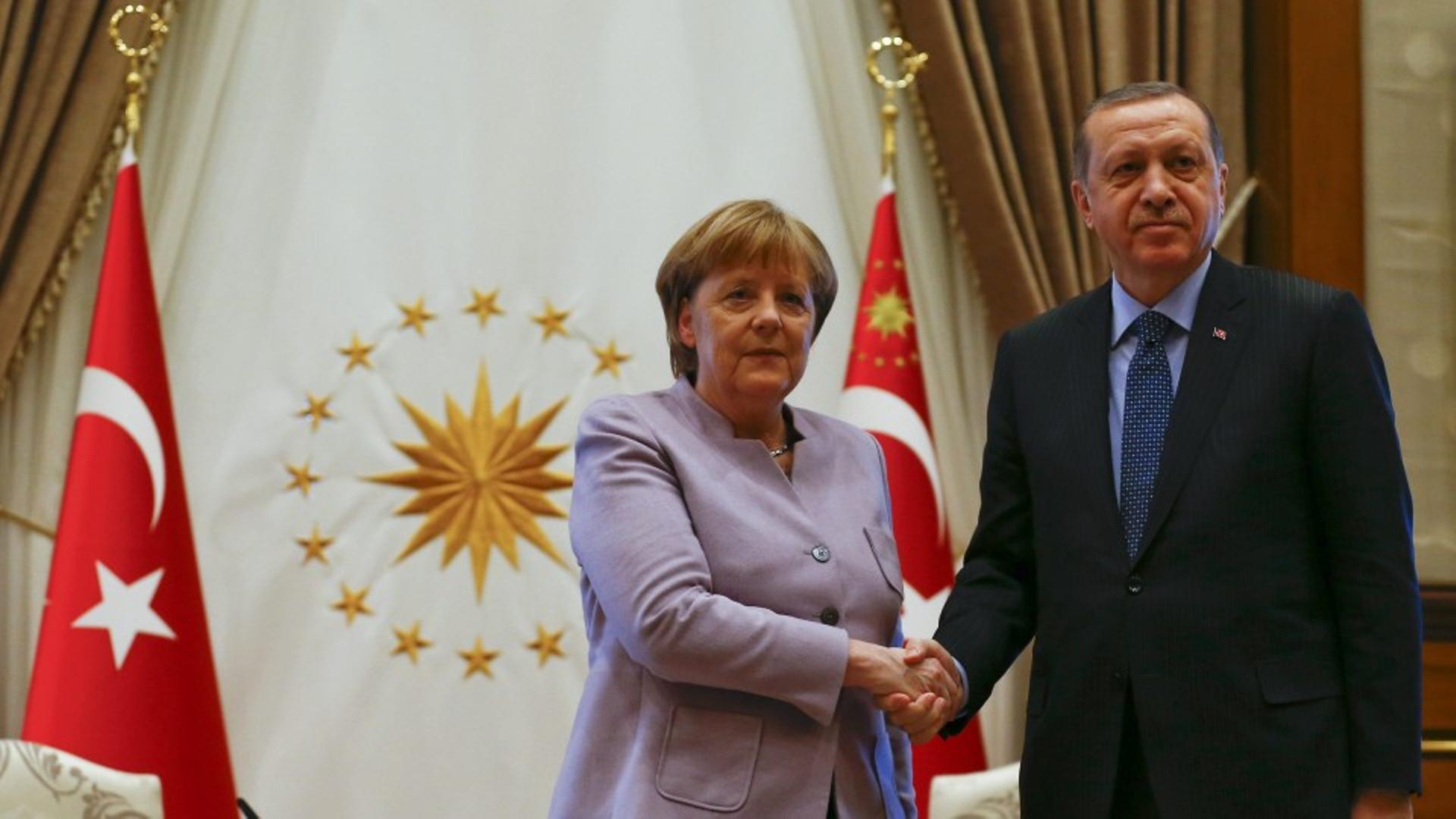
German Chancellor Angela Merkel and Turkish President Tayyip Erdogan on Thursday discussed the need for closer cooperation in fighting terrorism; and the refugee deal. Erdogan said the situation in Syria and Iraq were also part of the talks.
Merkel’s first visit to Turkey since the failed coup in July 2016 has come at a time when ties between the two countries are strained. Ankara has asked Berlin to reject asylum requests from Turkish military personnel as they were linked to the attempted putsch. Turkey has accused the Fetullah Gulen Terrorist Organization or FETO of orchestrating the move against the government.
“I think we agreed the fight against terror is very important and also of course against the authors of this coup. I have pointed out, however, that it has to be ensured that culpability is established case by case,” Merkel said at the joint press conference in Ankara.
Evidence against the military personnel might be handed over to German authorities, Erdogan said.
“There is not any difference between the FETO and other terror groups such as Daesh, the PKK and YPG. In my country, FETO staged a coup attempt against the state. And if anyone who took part in this attempted military coup fled to Germany and are living there, the German government should take action against them.”
Merkel drew some fire from the Turkish president after she referred to “Islamic terrorism” during the press conference.
Muslims were saddened by the term as it linked a religion of peace to terrorism, said Erdogan.
Even though a majority of countries have always condemned Daesh, Erdogan said, Turkey, as a Muslim-majority nation, was leading the fight against the terror group, he added.
“We appreciate Muslims and we have to fight in cooperation [against Daesh],” Merkel responded.
Turkey’s move to a presidential system
Both leaders touched on a bill introduced by the leading Justice and Development Party (AKP) to transform Turkey from a parliamentary system to a presidential system.
“We could see not least in the context of the coup how the Turkish public stood up for democracy, and for the rules of democracy in Turkey. That is exactly why, in this decisive phase, it is important that freedom of opinion is upheld and in connection with this, we talked about press freedom,” Merkel said.
Erdogan received the constitutional change bill from parliament on Thursday. The bill will remove the role of the prime minister while empowering the president. Once he approves it, the electoral commission will officially set the date for the public to vote on it, expected to be in early April.
Erdogan said the Republican People’s Party (CHP) and Peoples’ Democratic Party’s (HDP) criticism of the change in powers was unfounded.
He said a separation of powers would remain in place under the new constitution, with other centres of power along with the presidency. “The legislative is still there. So is the executive and the judiciary. Their dissolution… is out of the question,” said the Turkish president.
“[The new system] gives more opportunity for the executive branch to work more swiftly. The judiciary will retain its power and function as usual with the new system,” he said.
Merkel later met Turkish Prime Minister Binali Yildirim.
TRT World’s Hasan Abdullah reports.










Discussion about this post